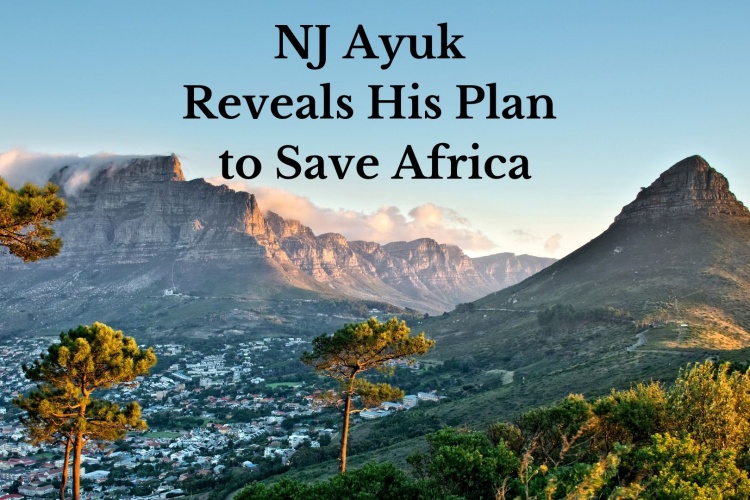Hundreds of millions of people in Africa are suffering from energy poverty, with many more depending on unreliable electric grids that regularly go down. But Amazon bestselling author and energy expert NJ Ayuk has a plan to change that.
As climate concerns push governments to adopt stricter standards and earlier time lines to switch to renewable sources, the energy sector is preparing for a shakeup. But as environmentalists push to outlaw new sources of coal, oil, and natural gas, NJ Ayuk — a lawyer whose firm, Centurion Law Group, works extensively in the energy industry — worries that people in Africa will get left further behind.
In his new book, A Just Transition: Making Energy Poverty History With an Energy Mix, he envisions a way for the world to move toward a greener future while allowing people from less developed nations the chance to catch up and enjoy the benefits of electricity. And Ayuk believes that one of the first steps toward putting Africa on the path toward a more sustainable future is shoring up funding for sustainable projects.
“On a bigger scale, we have to look at the issues that surround who has access to financing. I really drive this issue a lot because it is foundational to understanding what has already happened and what needs to change to ensure a better future. If you look at the numbers, you will see that less than 2% of global renewable investments have gone to Africa,” he said. “That's an issue that we need to advocate for more. We need to drive an increase in those kinds of investments if we want things to change in Africa. Right now, the world cannot tell the African continent to walk away from fossil fuel, then put less than 2% of its total investment into that continent.”
Historically, however, Africa has not always received a payout from the promises that have been made by wealthy nations. That has been happening for a long time, but the world was reminded of it again recently. In 2009, the wealthy countries that comprise the Conference of Parties promised to contribute $100 billion to developing nations by the year 2020 to help them reduce greenhouse gas emissions. This goal was formalized at the COP the following year, and at COP 21, it was extended to 2025.
However, that promise has not been kept. During the intervening years, things have not gotten better. Many less-wealthy nations have dealt with some of the worst effects of climate change. Natural disasters, like floods and famine, have wreaked havoc on some of the world’s poorest countries.
NJ Ayuk calls such promises “part of the balance sheet” between Africa and the rest of the world. His book details a plan to pull ordinary Africans out of energy poverty and push the continent toward more sustainable options. But he is not waiting to act.
As part of his duties as the executive chairman of the African Energy Chamber, he constantly works to increase foreign investment in Africa’s energy sector. He hopes the $100 billion promise is kept and that even more foreign investment comes to Africa.
At the same time, NJ Ayuk believes that there is work for Africans to take on at home. While he believes that environmental issues affect the entire world and the globe must work together to combat a looming crisis, he does not pin all of his hopes for Africa on investment from wealthier nations.
Part of the solution, he says, must come from within the borders of African countries themselves.
“We as Africans have to look at the mirror,” he said. “Mirrors sometimes are not only there to reflect what we see. Sometimes, mirrors are there to correct what we see. Right now, we can look at the mirror and see the reflection of ourselves doing less than what is required. The mirror is showing us the things that we need to start doing for ourselves. We need to start looking at raising capital. We need to engage with organizations like Bank of America and others, so that we can find those creative, African private equity hedge funds and financial institutions to increase the pace of what is going on.”
African nations, Ayuk said, should band together and take on the tough job of being their own advocate to the world. Together, the people of Africa can present a cogent, unified argument for how everyone can live a better life if wealthier nations help to tackle the problems that plague the poorest people.
“I like watching movies sometimes. I have to tell you right now that Superman is not coming to do this for us. Batman is not coming to save us. Wakanda Forever is a great movie. But the Black Panther won’t save us,” NJ Ayuk stated. “So we have to really advocate for ourselves and drive this ourselves. If we want to raise money for our future, that will fall to us to do.”
